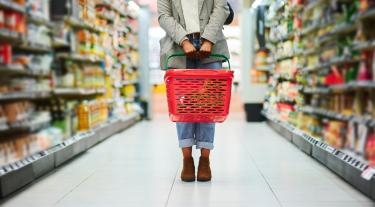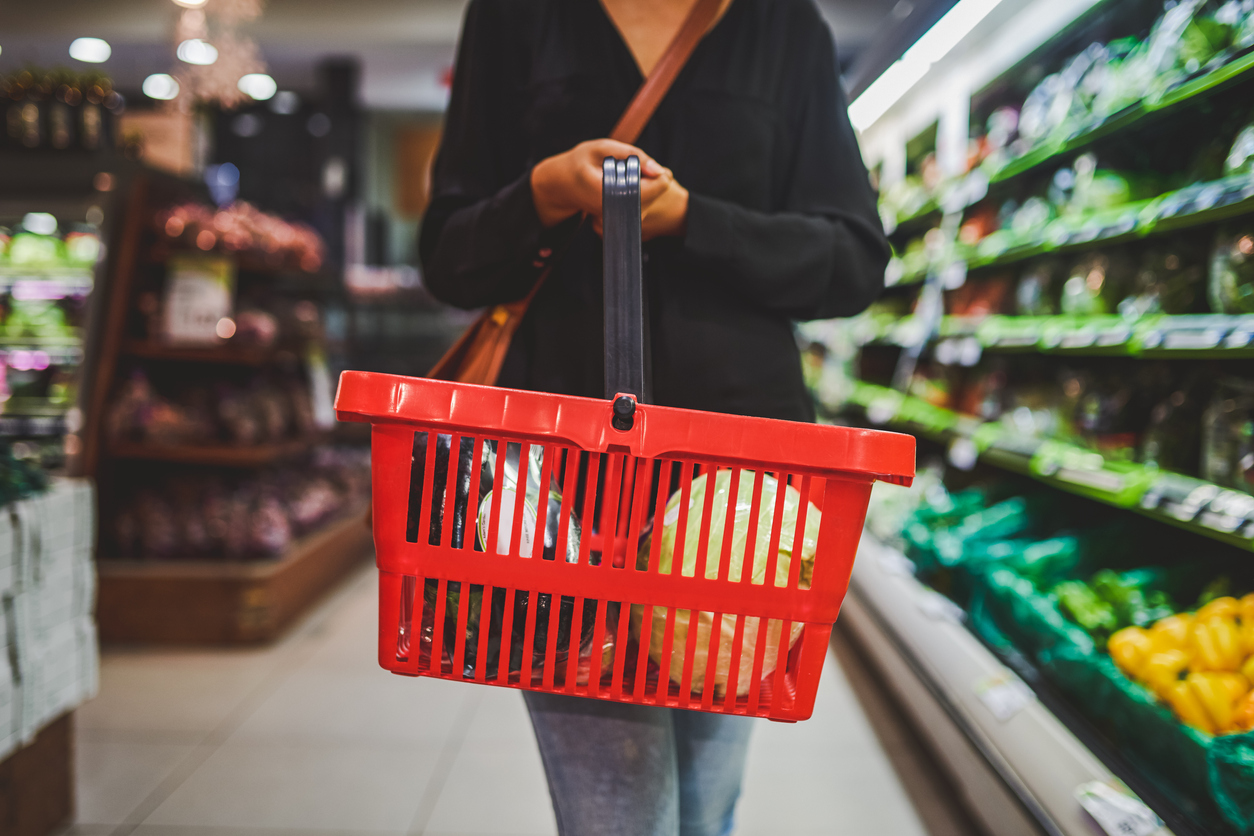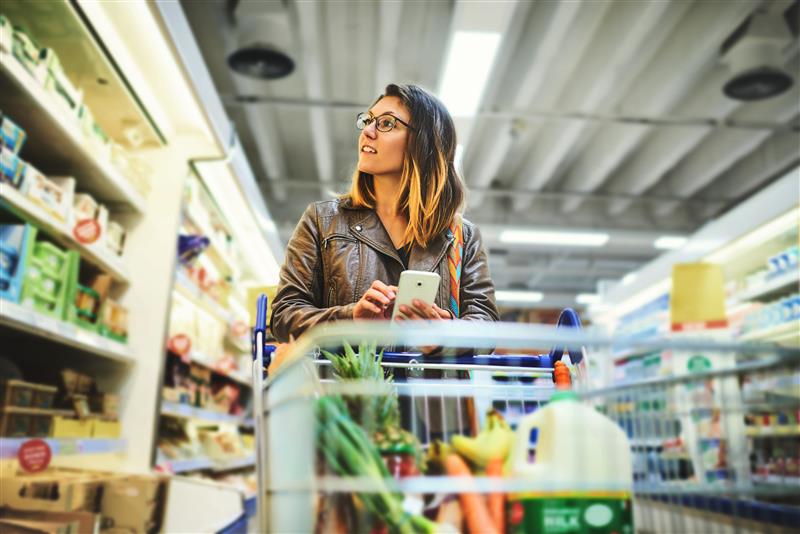The world’s ten largest supermarkets are all making progress on reducing the climate impact of their own operations, but transformational change and increased collaboration in the sector is needed to address the 90% of emissions linked with their supply chains, according to a new report from the Carbon Trust.
'Big changes in store: How can the global supermarket sector accelerate to Net Zero?' takes stock of Net Zero progress of the world’s top 10 biggest supermarkets by revenue. Using the Carbon Trust’s Net Zero Sector Assessment tool, it looks at seven key aspects of a robust Net Zero plan. The key findings include:
- Only four of the world’s 10 largest supermarkets have set Net Zero targets.
- While all ten have short-term plans to reduce emissions — from stores, depots and vehicles — only four have long-term targets for tackling product-related emissions, which make up close to 85% of their footprint.
- Decarbonising food production – the sector’s biggest source of emissions – is in very early stages, with just four of the 10 outlining detailed plans to scale sustainable agriculture
- Eight out of the 10 have ambitious targets to eliminate deforestation, mostly thanks to regulations and high-profile campaigns, but transparency and traceability challenges are restricting progress.
- A lack of visibility into supply chains is holding supermarkets back on target-setting, action planning, reporting and implementation, especially in eliminating deforestation. Indeed, only half of the top 10 supermarkets disclose data relating to the products they buy — a major contributor to supply chain emissions and accounting for 60% of total emissions.
- Just two out of the 10 outline the steps they are taking to advocate for policies that would help them move faster on climate, while four outline actions they are taking to encourage Net Zero aligned consumption habits.
The report finds three areas consistently holding supermarkets’ Net Zero efforts up: agriculture and deforestation; access to reliable supply chain data; and the need for changes in policy and consumer dietary habits.
As well as exploring why supermarkets are struggling to make faster progress in these areas, the report offers recommendations for supermarkets to implement both individually and collectively.
Key recommendations for supermarkets to take include supporting food producers to adopt climate-smart agriculture practices like optimising animal feed, which can reduce methane emissions from livestock production. Supermarkets can enable and incentivise farmers to make these switches by offering premium prices, low-interest loans and early payments for sustainably produced goods.
The report argues that supermarkets can achieve more through collaboration — from sharing supply chain emissions data, making commitments to pay farmers a premium for sustainably produced goods, and pooling resources to address carbon-intensive commodities like meat and dairy.
Transitioning to a Net Zero economy can also bring commercial opportunities, from future proofing business models and exploring new opportunities in low carbon markets. For supermarkets, this includes tapping into tapping into the $15 billion alternative proteins market.
Simon Retallack, Director at the Carbon Trust said:
“With their position at the centre of the global food system, supermarkets have a golden opportunity to use their influence to bring suppliers, customers and policymakers on board in the journey to Net Zero.
“Supermarkets today are under pressure to provide healthy, affordable, and sustainable products. The good news is that there are solutions to achieve that. But radical collaboration between supermarkets and suppliers is going to be vital. This will be needed, for example, for delivering shared data platforms to collect emissions data and track links to deforestation; co-investing to scale regenerative agricultural practices; and adopting a collective vision and voice to achieve more influence over shopping habits and the policy environment.
“Working together and with their supply chain, supermarkets can unlock a step change in progress, opening up opportunities a Net Zero economy offers, and developing a food system that is resilient for the future.”
Sharon Bligh, Director of Health & Sustainability at the Consumer Goods Forum said:
"The Consumer Goods Forum (CGF) welcomes the Carbon Trust's Net Zero Sector Assessment of the world's ten largest supermarkets. This report shines a light on the urgent need for supermarkets to work together to achieve Net Zero. At the CGF, we couldn't agree more. Our Towards Net Zero Coalition of Action is already working this way with aligned objectives for tackling deforestation and food waste – all crucial to a Net Zero future. We believe this report is a valuable resource for supermarkets ready to accelerate progress."
Notes to editors
For further information please contact:
The Carbon Trust press office on +44 (0)20 7170 7050 or press@carbontrust.com
Top 10 supermarkets by revenue in the report
- Walmart (USA)
- Schwarz Group — owners of Lidl and Kaufland (Germany)
- Kroger (USA)
- Aldi South (Germany)
- Tesco (United Kingdom)
- Carrefour (France)
- Edeka (Germany)
- Albertsons (USA)
- Aeon (Japan)
- Ahold Delhaize (Netherlands)
About the Net Zero Sector Assessment
The Net Zero Sector Assessment was developed by the Carbon Trust to provide a consistent framework to review organisational public climate commitments. It is used to take stock of where a sector stands on its journey to Net Zero, to better understand the gaps and identify relevant solutions.
The assessment looks for seven key approaches that form the basis of a best practice response to climate change:
- Recognition and ownership of the sector’s role in creating and solving climate change
- Ambitious targets and accountability mechanisms, which enable the organisation to meet its targets
- A robust Net Zero implementation strategy, setting out how targets will be met
- Responsible use of natural resources, which accounts for planetary boundaries
- An approach to carbon offsetting and carbon removal in line with international best practice
- Transparent disclosure and external verification of environmental claims
- Engagement with stakeholders to secure external drivers for action on climate
The Assessment is based on an analysis of a company’s most recent sustainability report, annual report and published emissions data, as well as the Science Based Targets initiative’s registry. Trends are presented at sector level; the performance of individual companies is not commented on.
About the Net Zero Intelligence Unit
The Net Zero Intelligence Unit provides experience-led insights to accelerate global progress towards Net Zero. The Unit is a dedicated team focussed on raising ambition, awareness and action on Net Zero by drawing on the Carbon Trust’s 20 years’ experience of working with businesses, governments and financial institutions globally.
About the Carbon Trust
The Carbon Trust is a global climate consultancy driven by the mission to accelerate the move to a decarbonised future. We have been climate pioneers for over 20 years, partnering with businesses, governments and financial institutions to drive positive climate action. From strategic planning and target setting to activation and communication - we turn ambition into impact. To date, our 400 experts have helped set 200+ science-based targets and guided 3,000+ organisations and cities across five continents on their route to Net Zero.
Our experts have supported supermarkets and their suppliers on various aspects of Net Zero transition planning, including decarbonisation roadmaps, industry collaboration and engagement with customers. The Carbon Trust Label directory drives transparency and informed decision-making by providing consumers with clear and accessible information on product carbon footprints.





